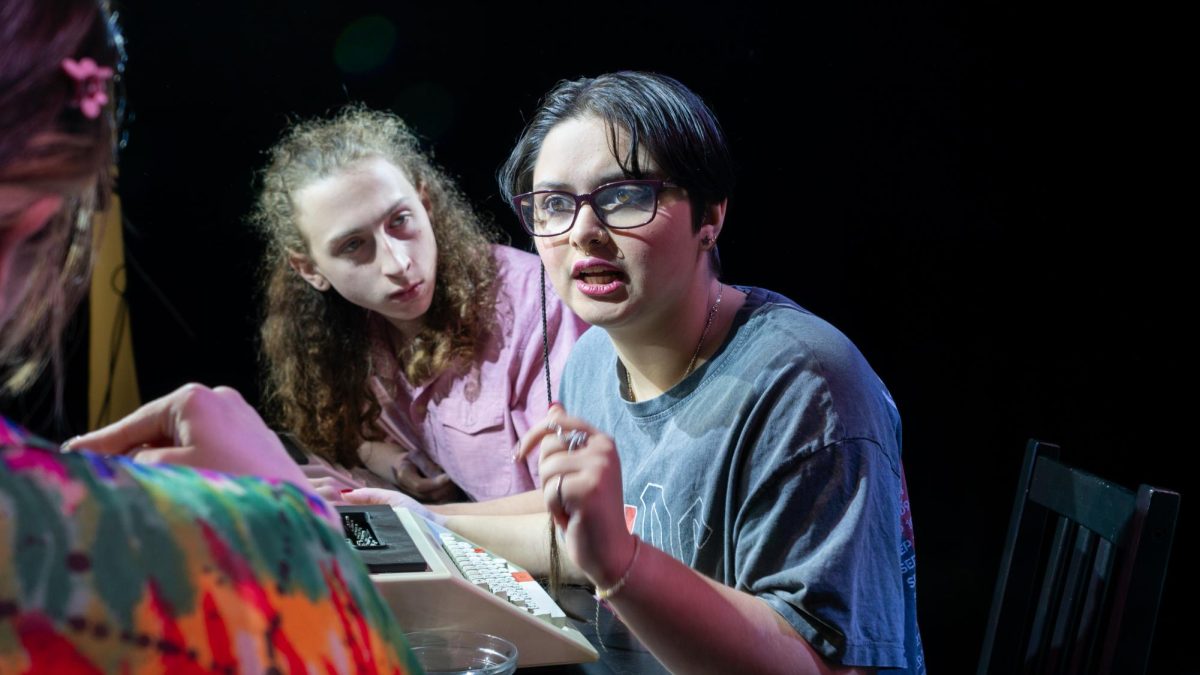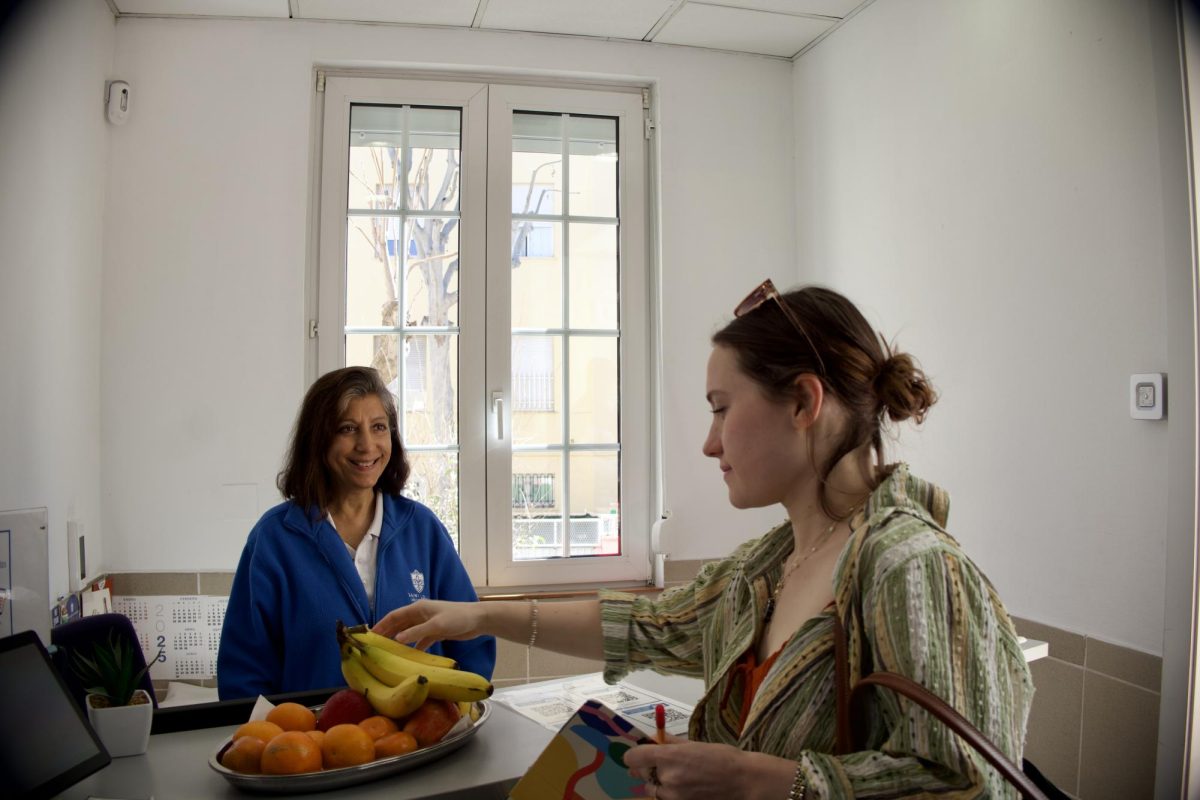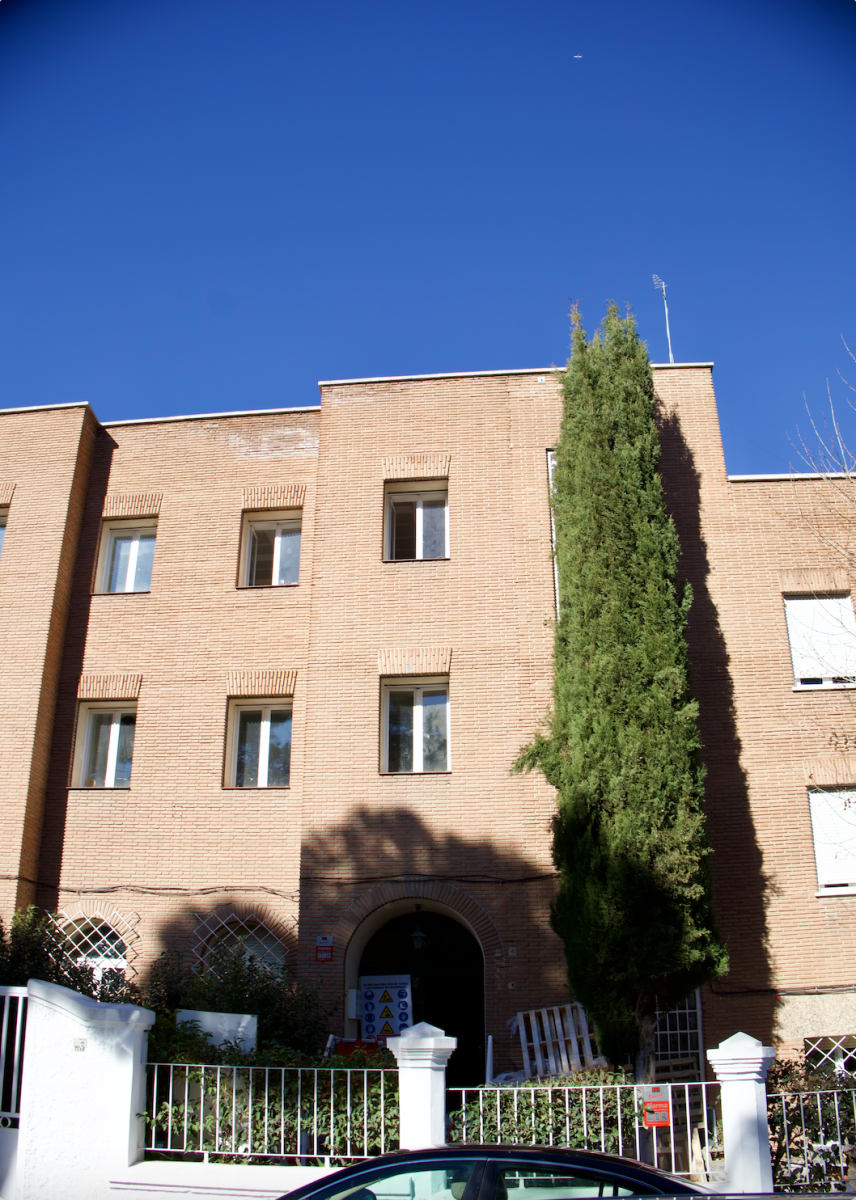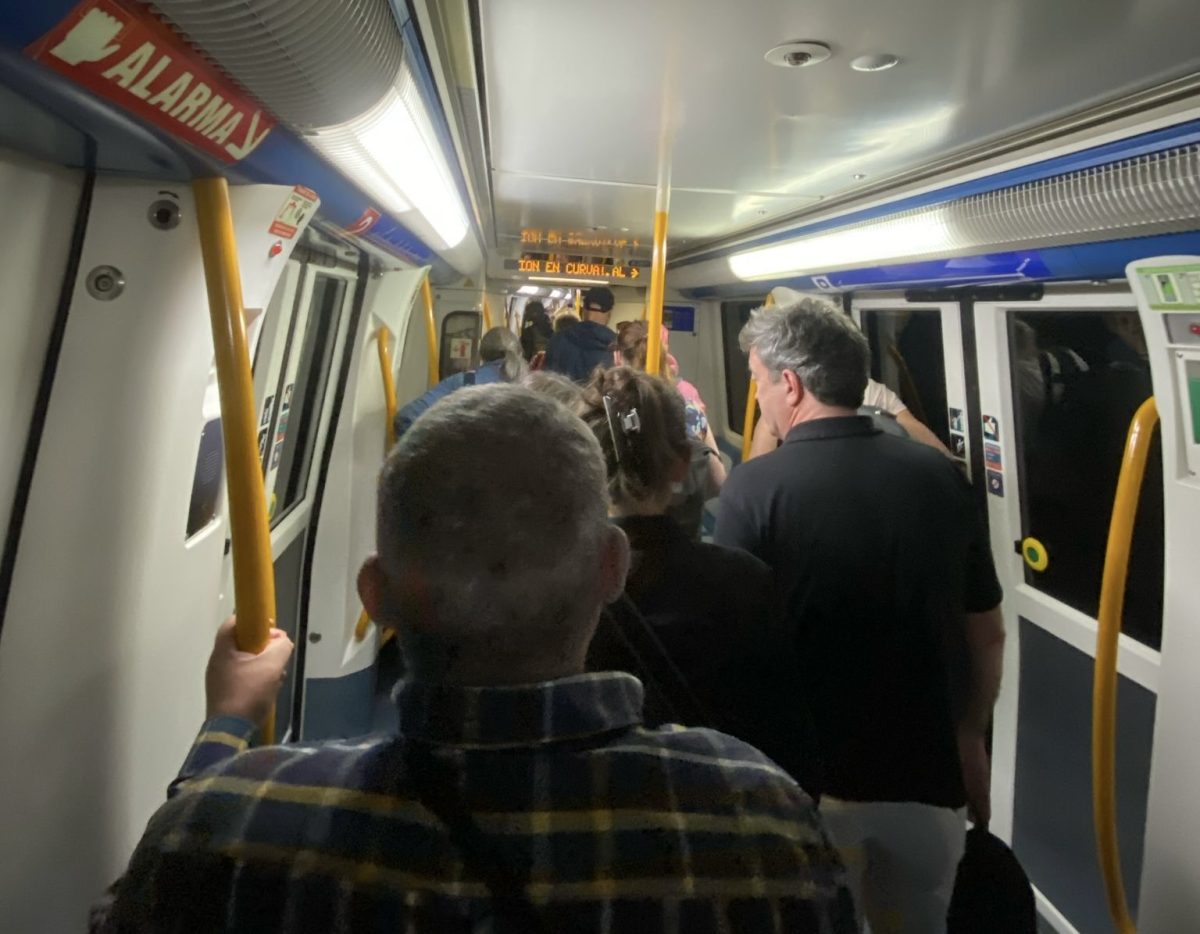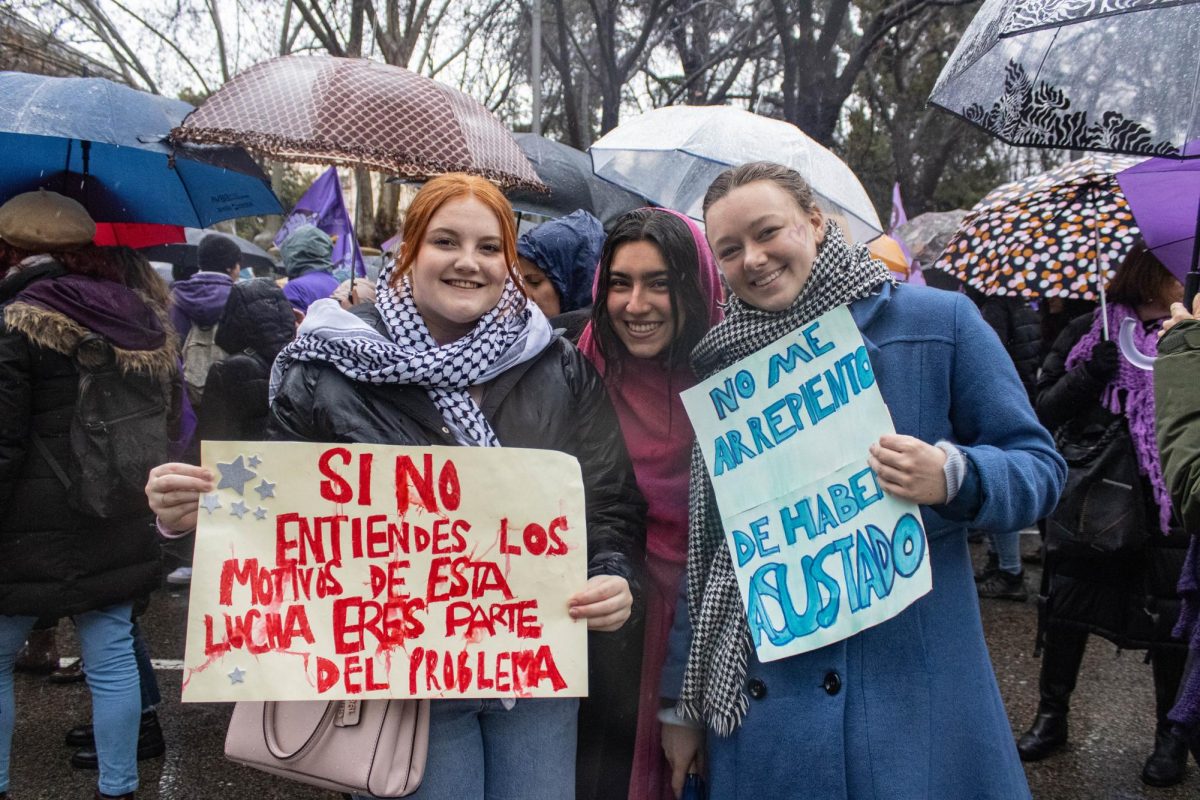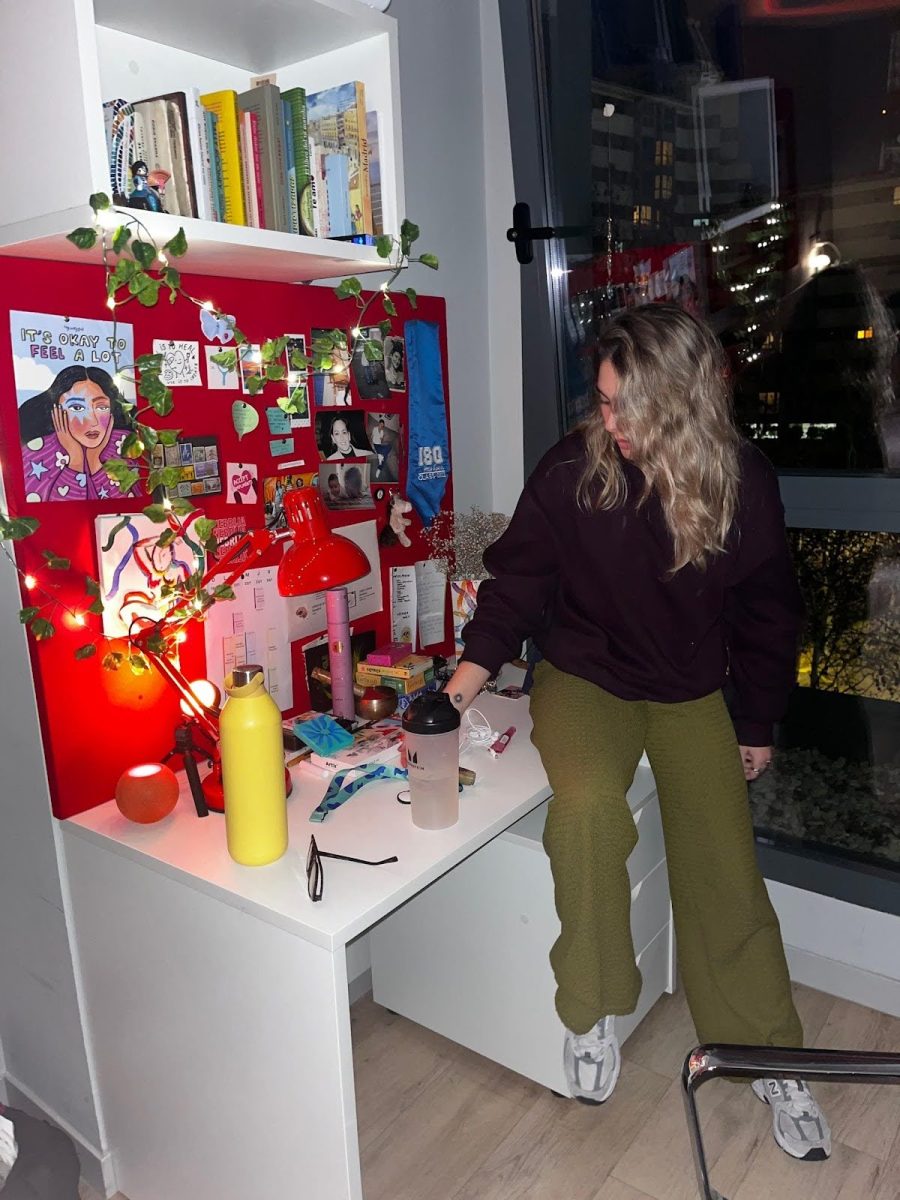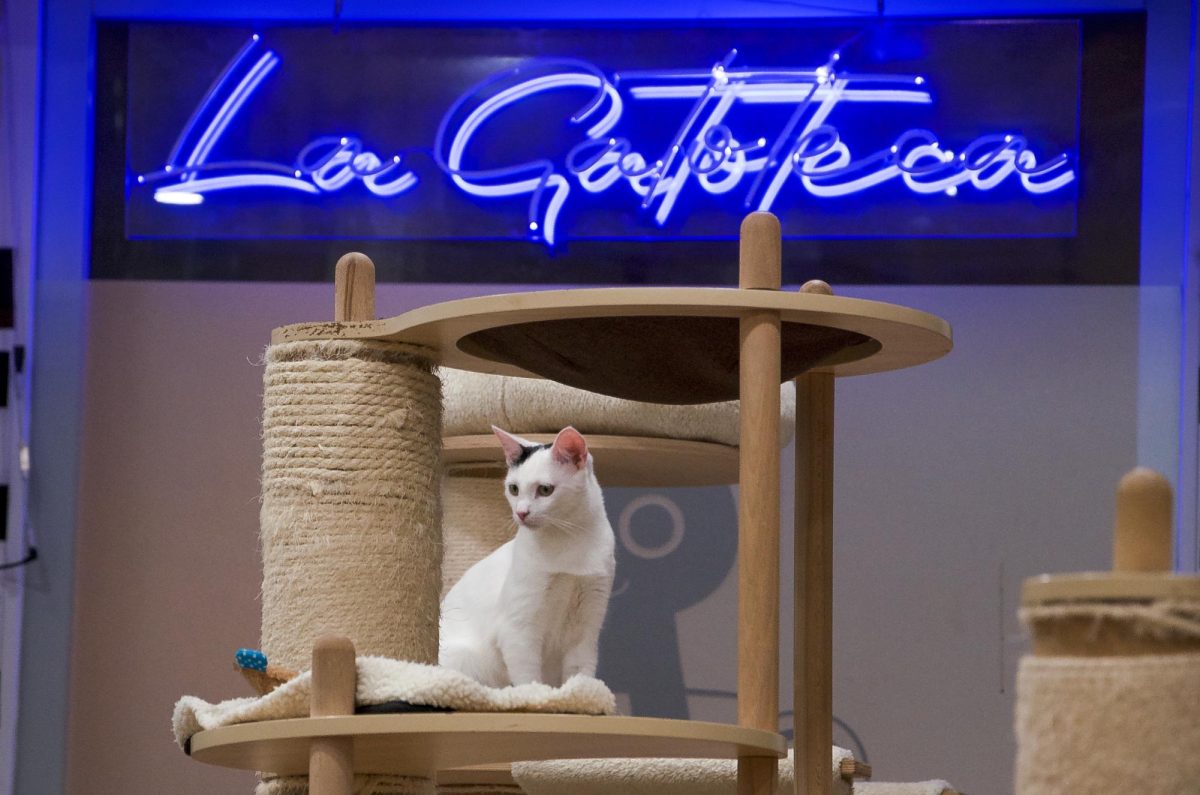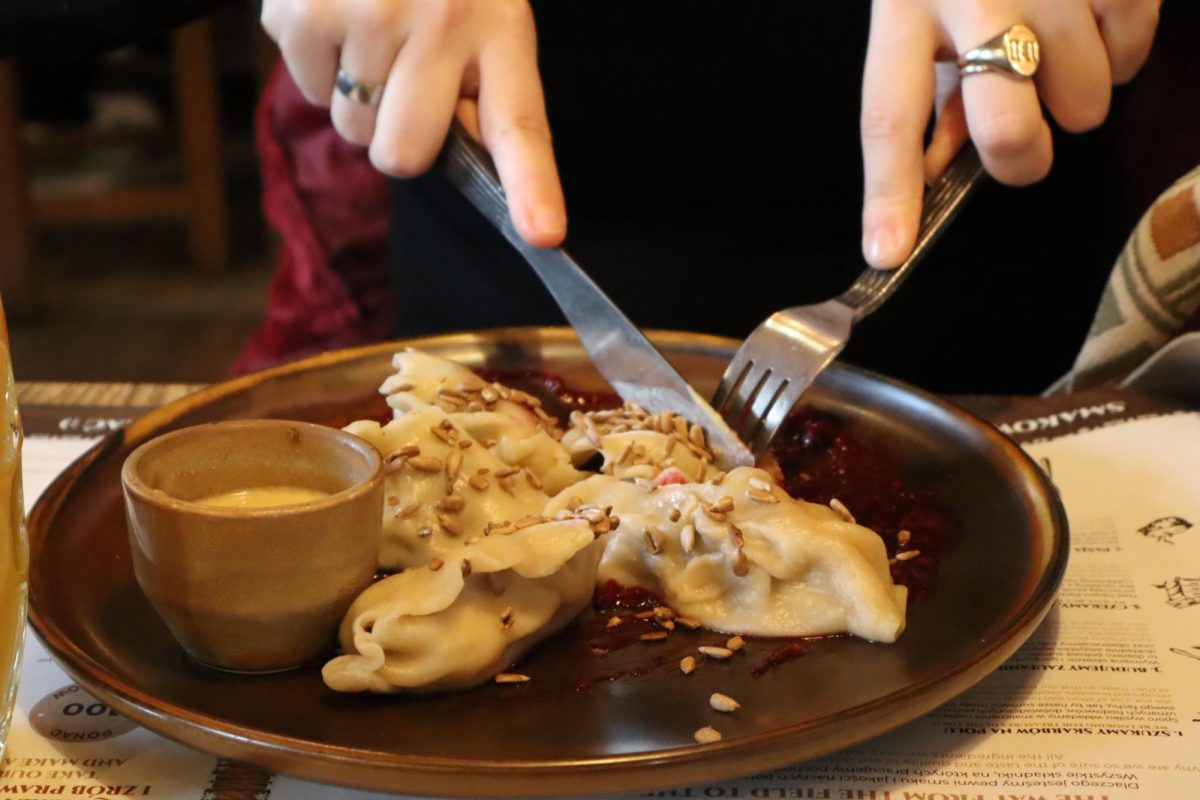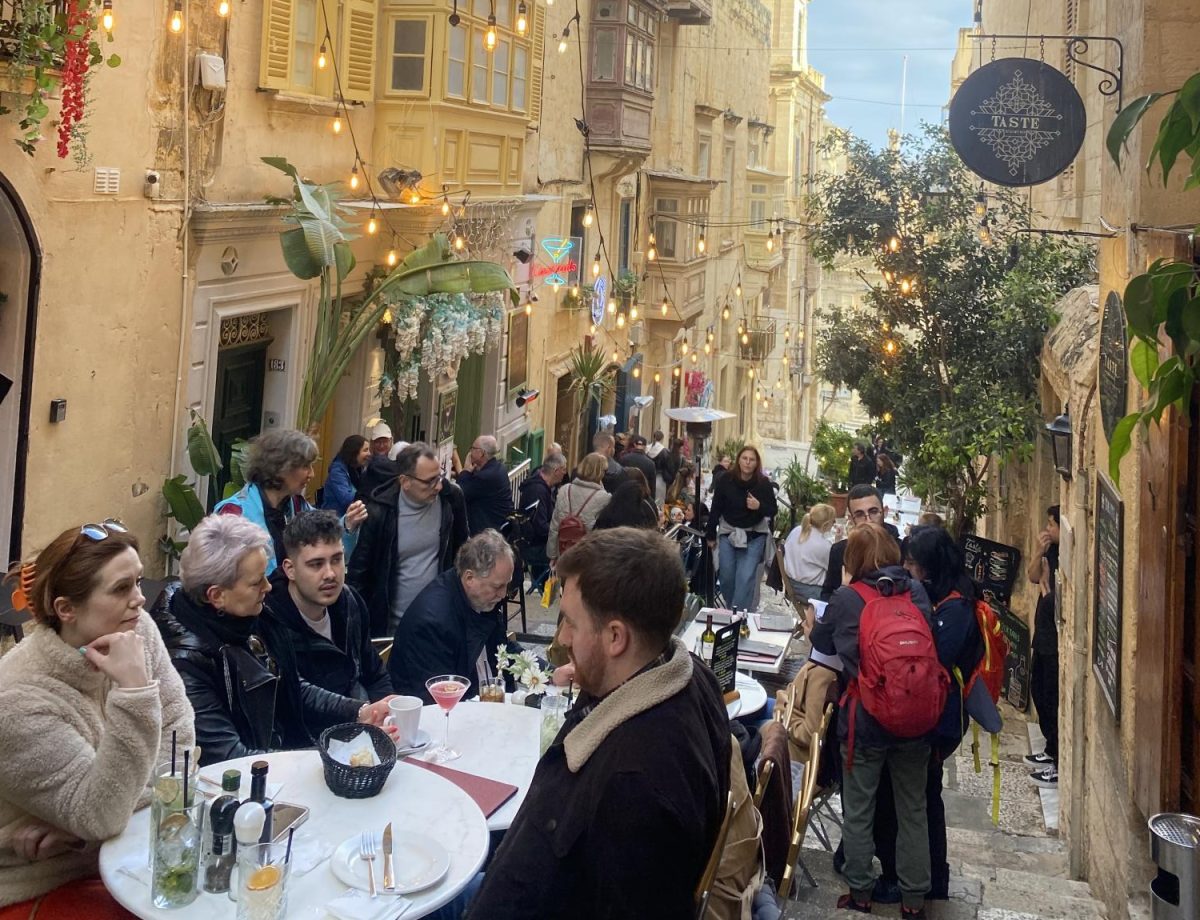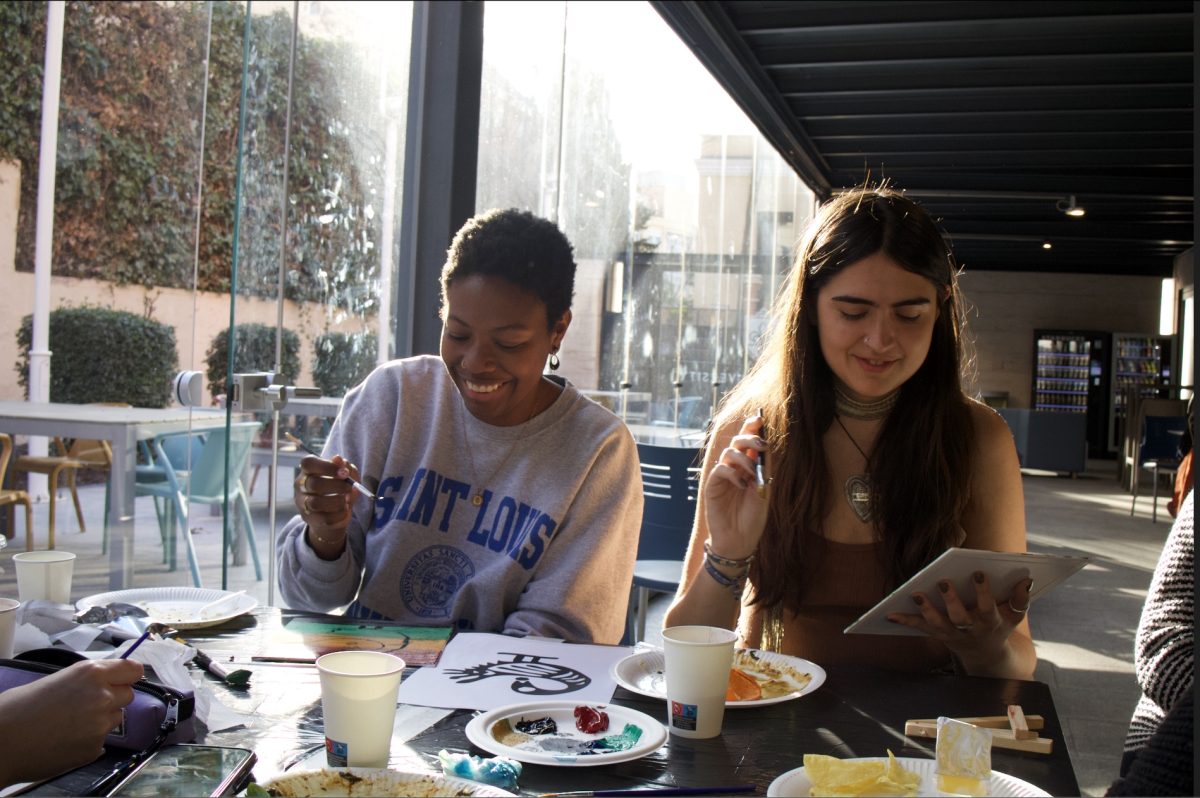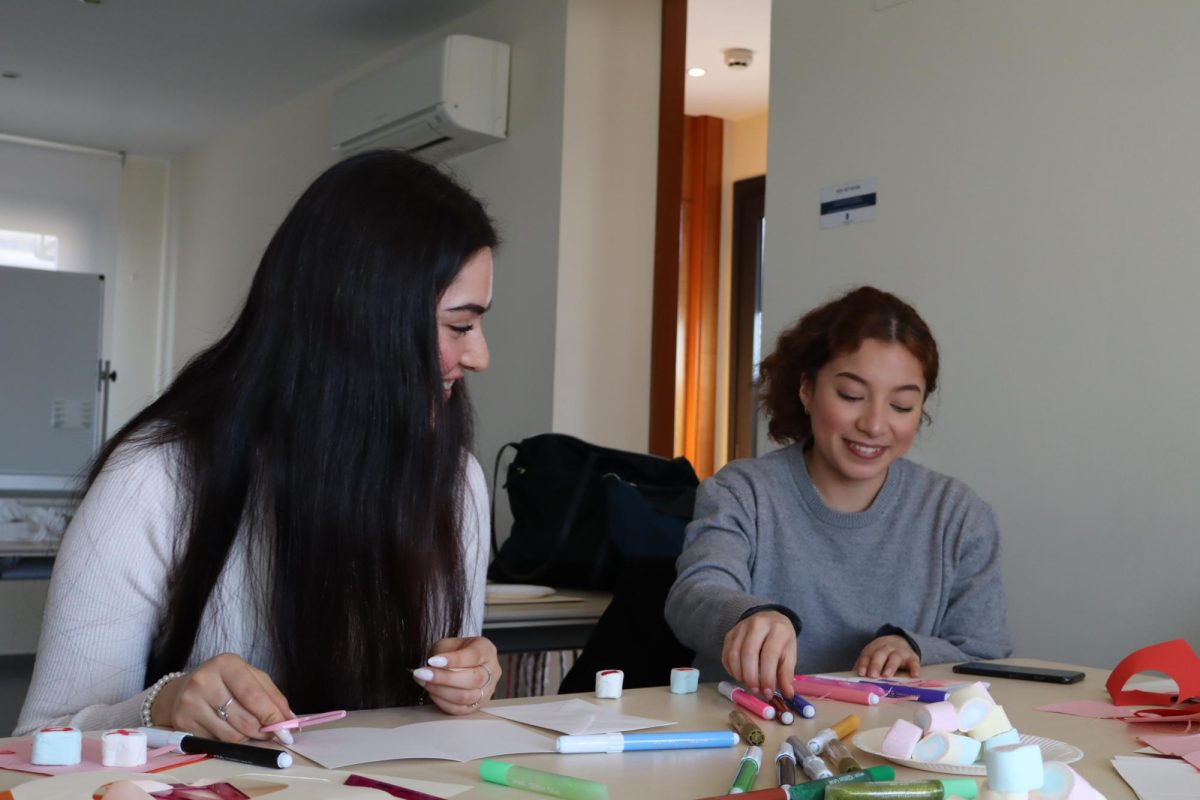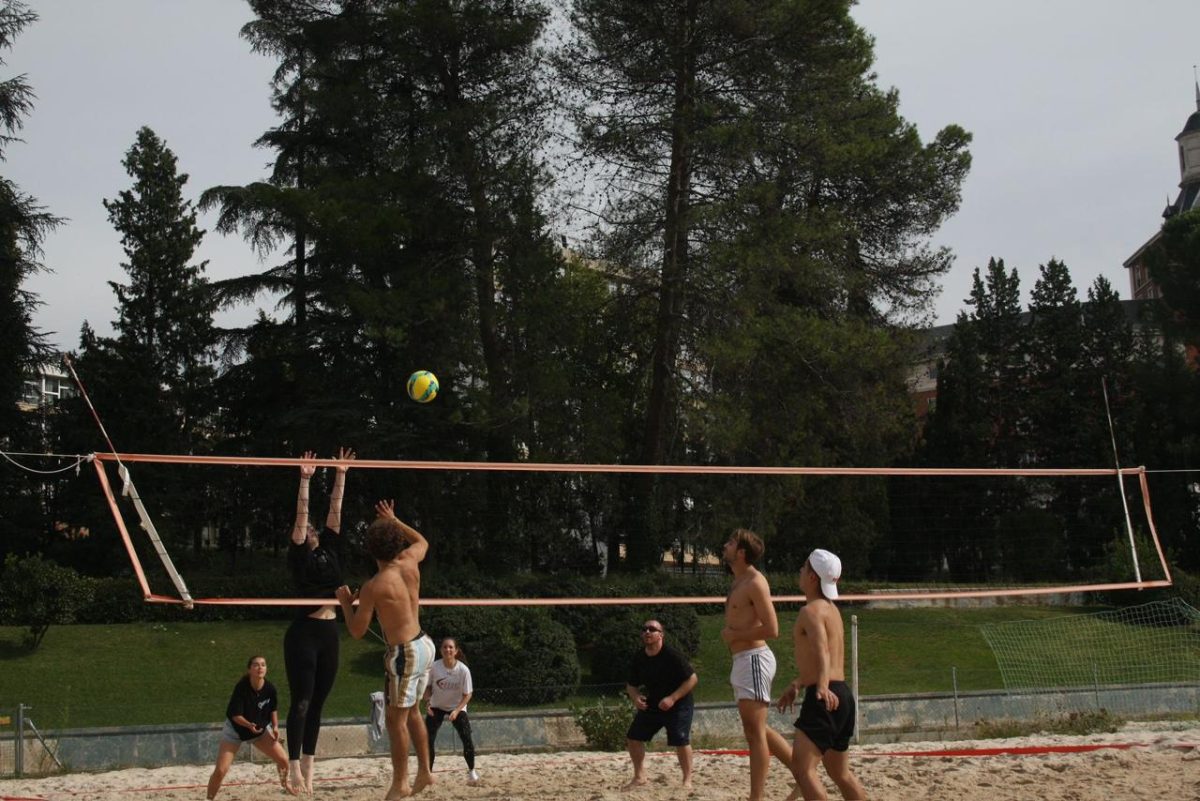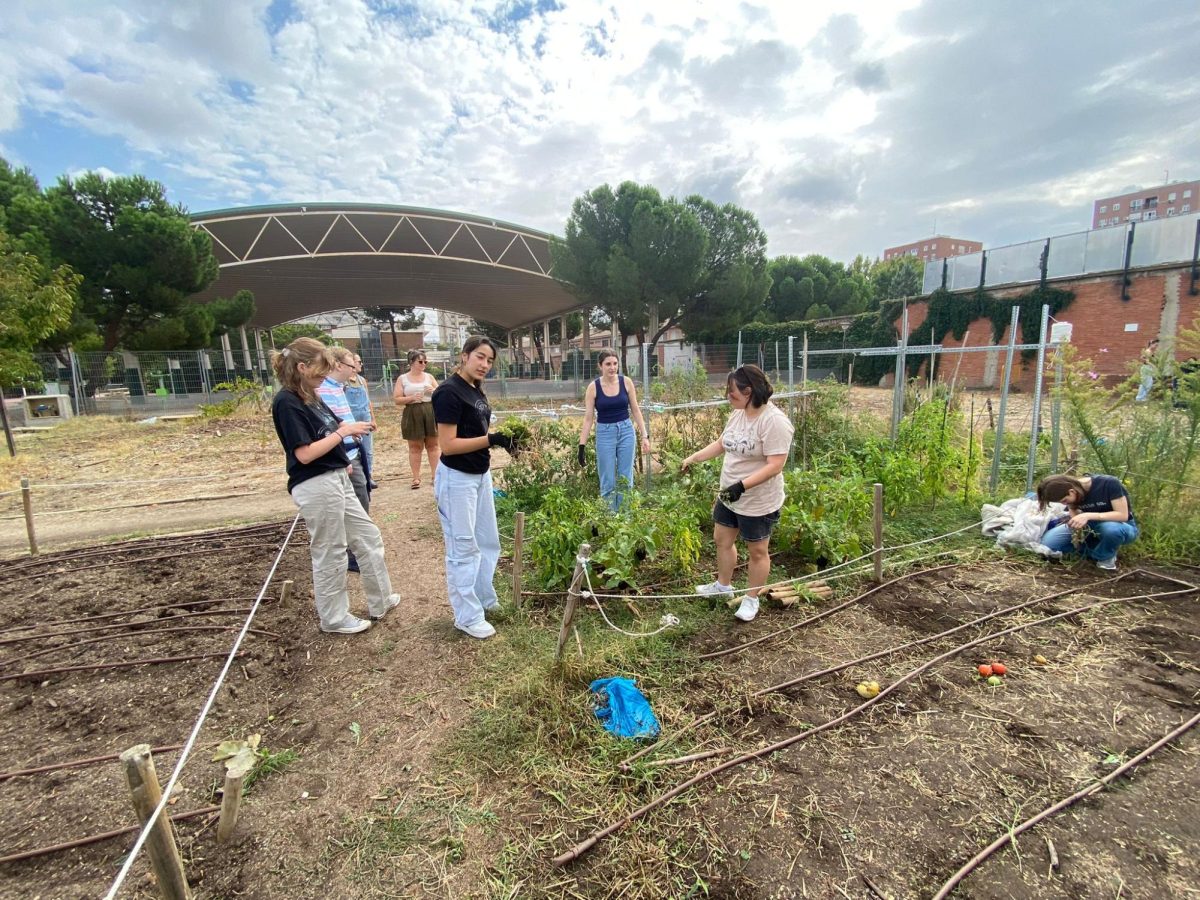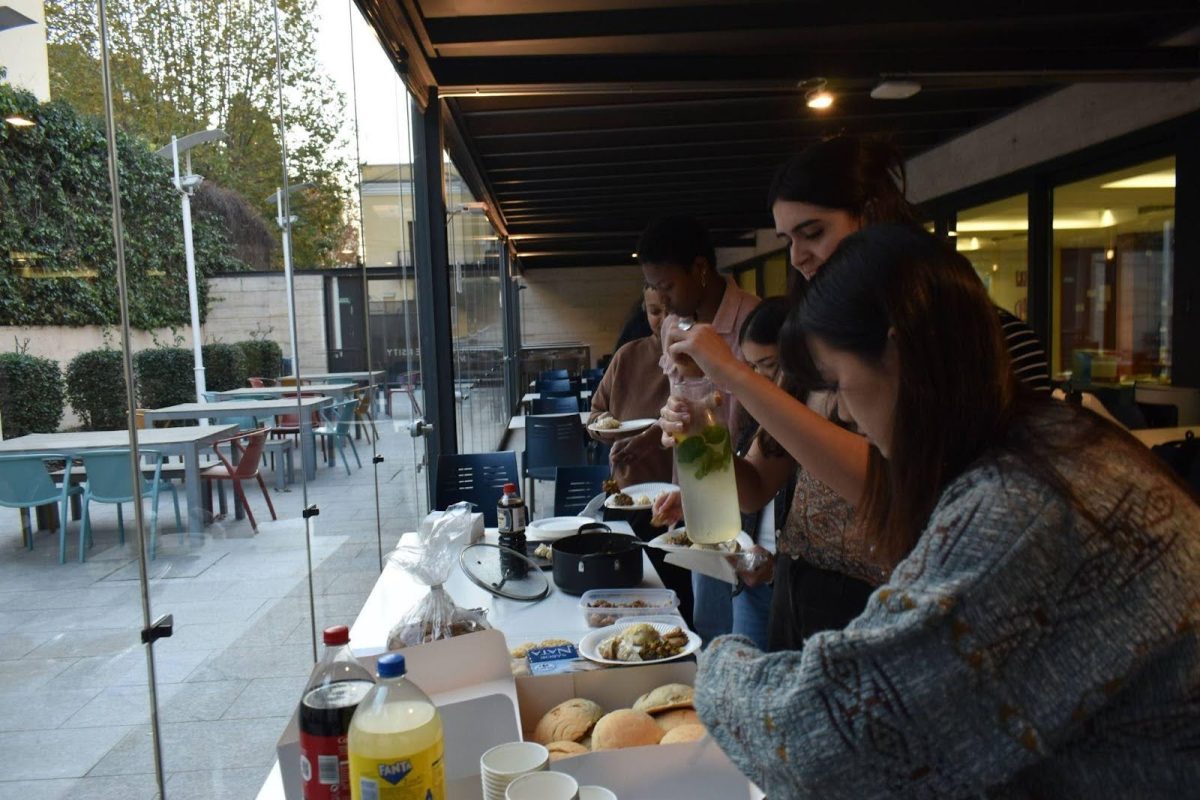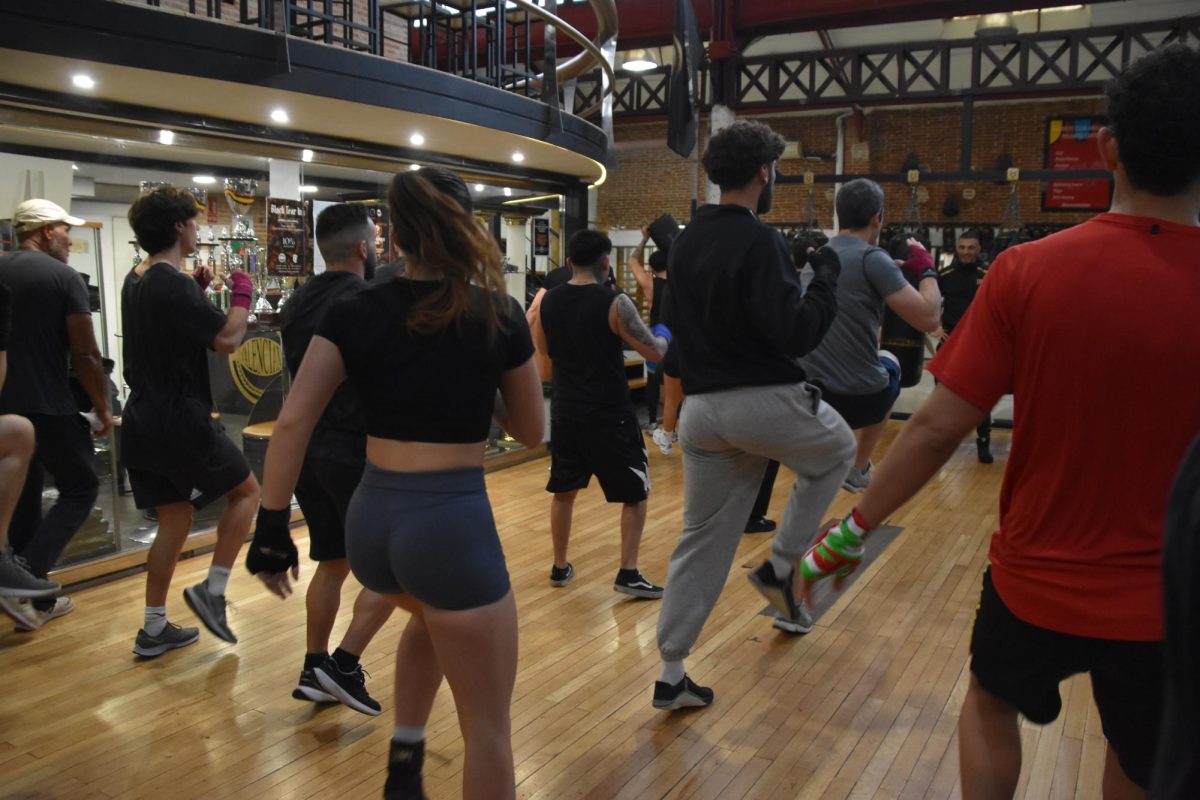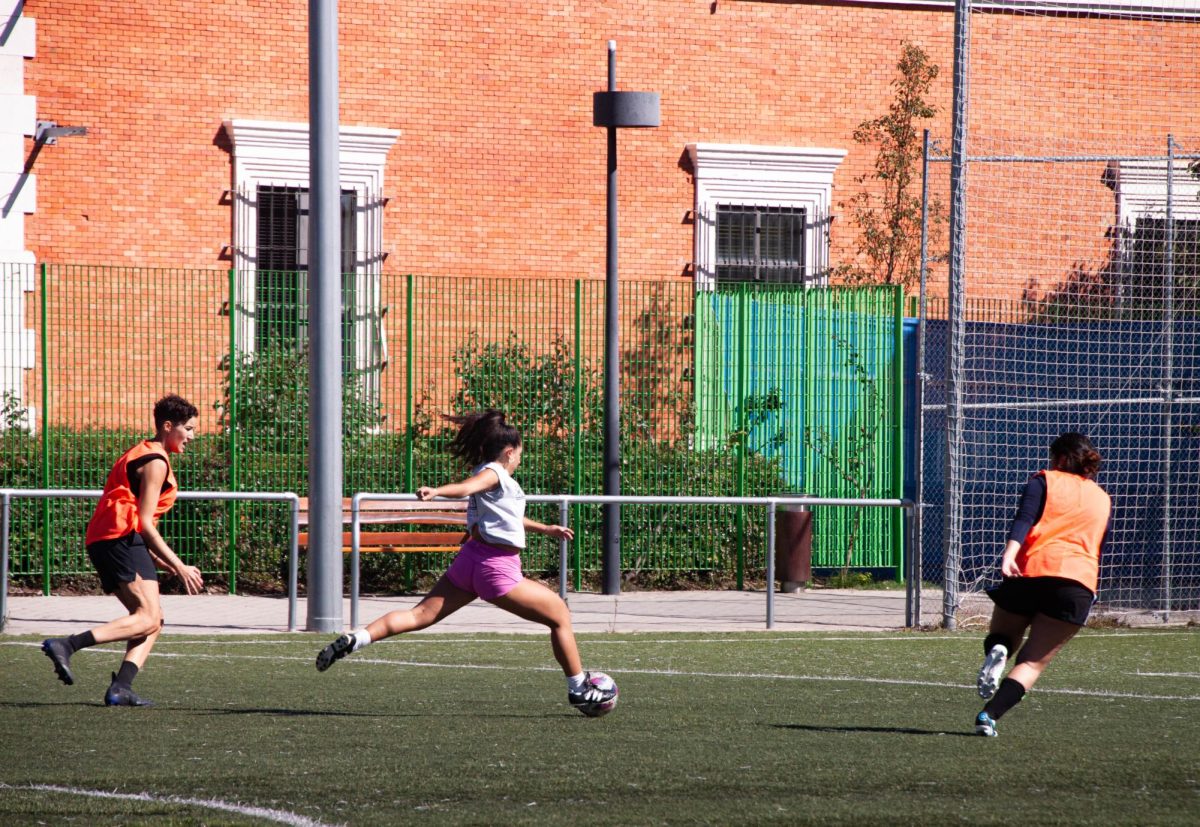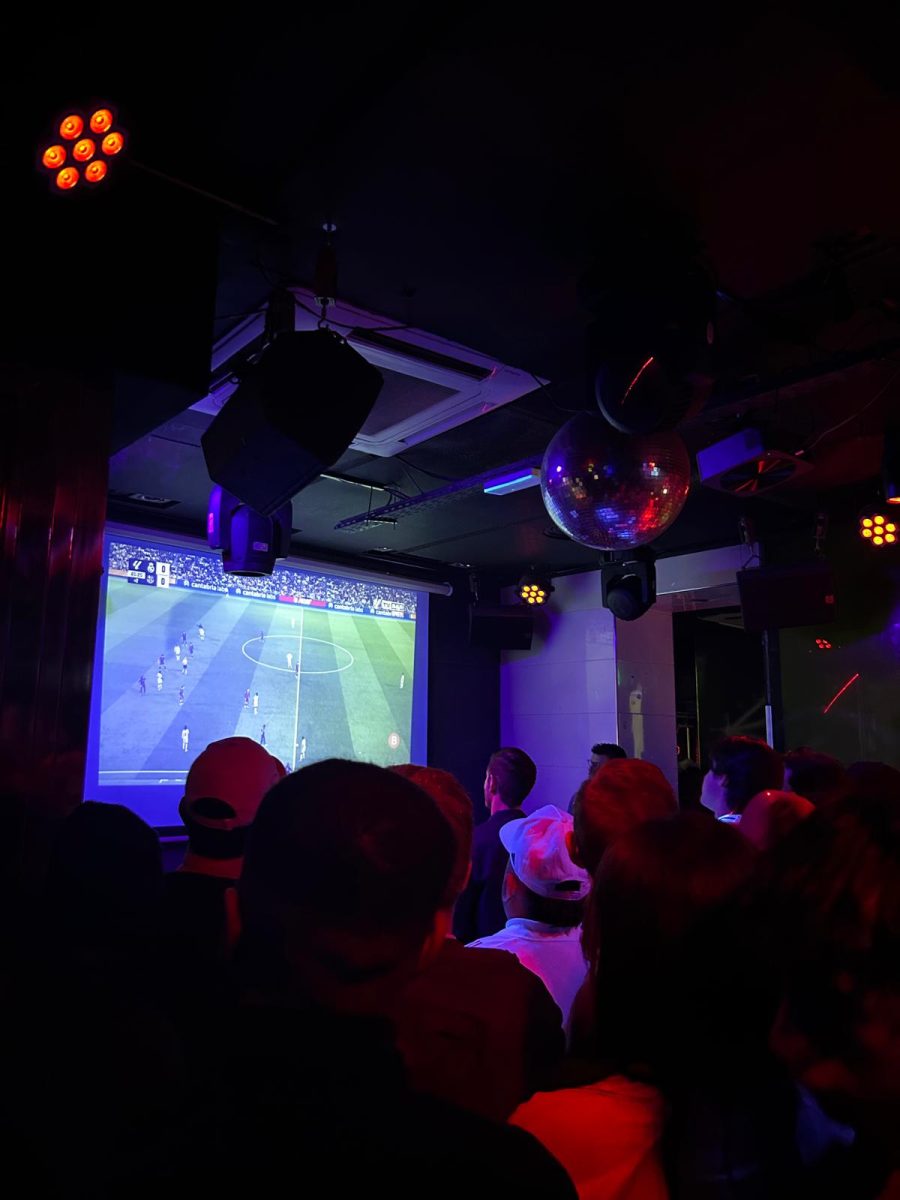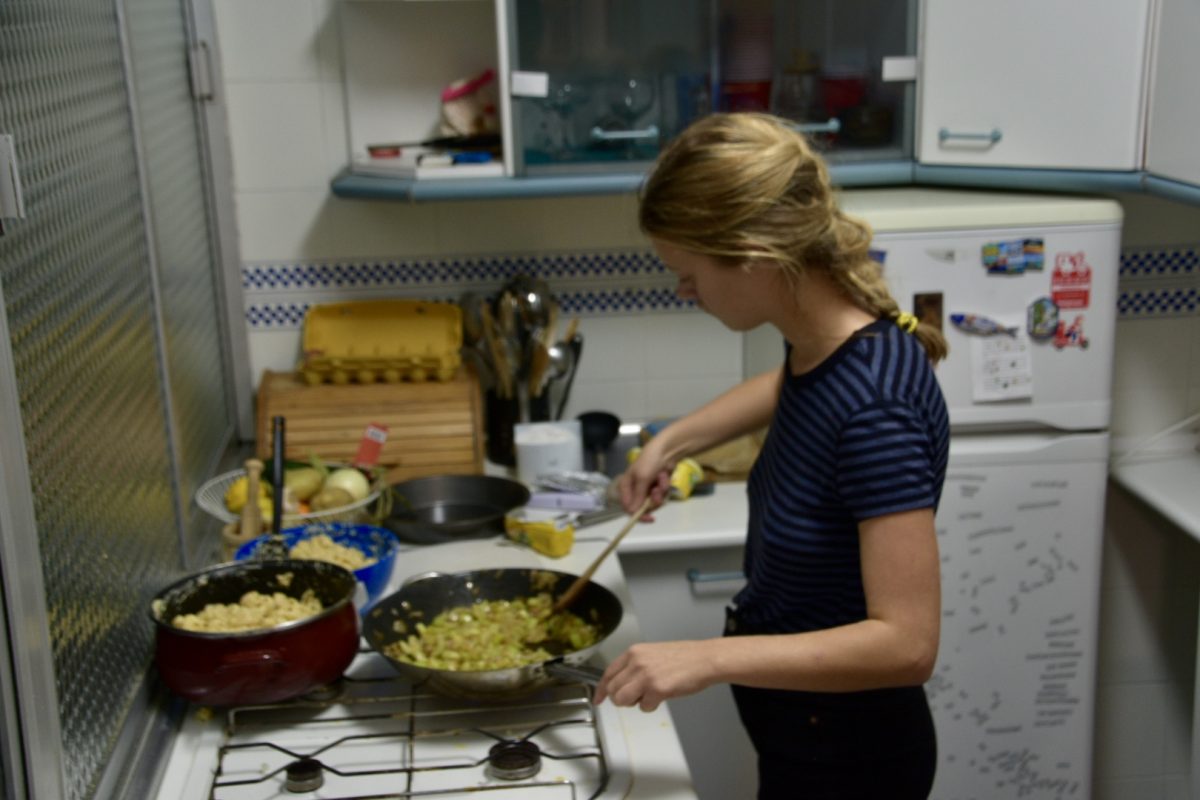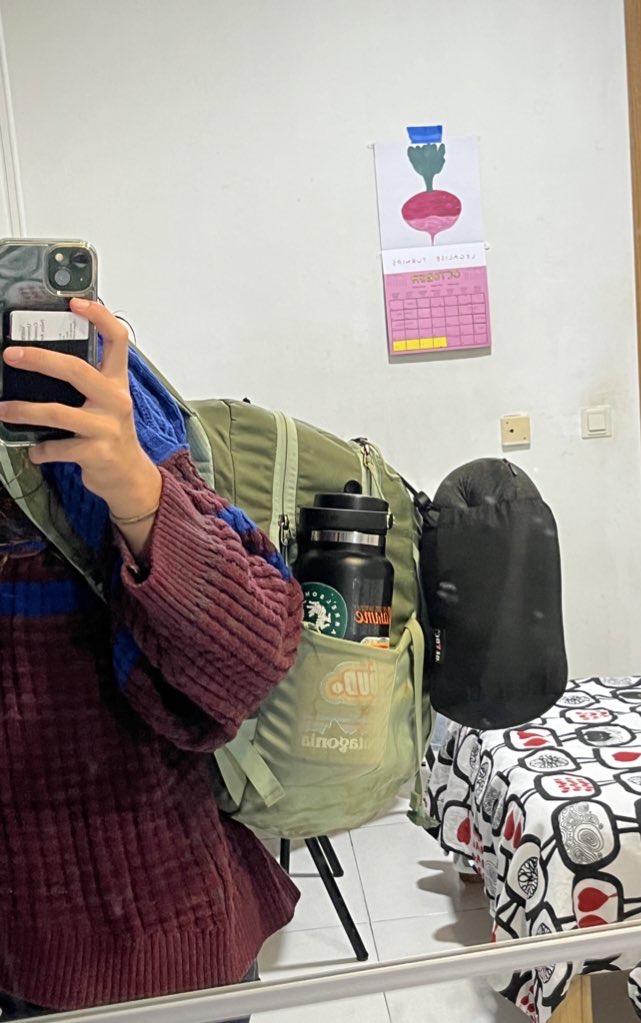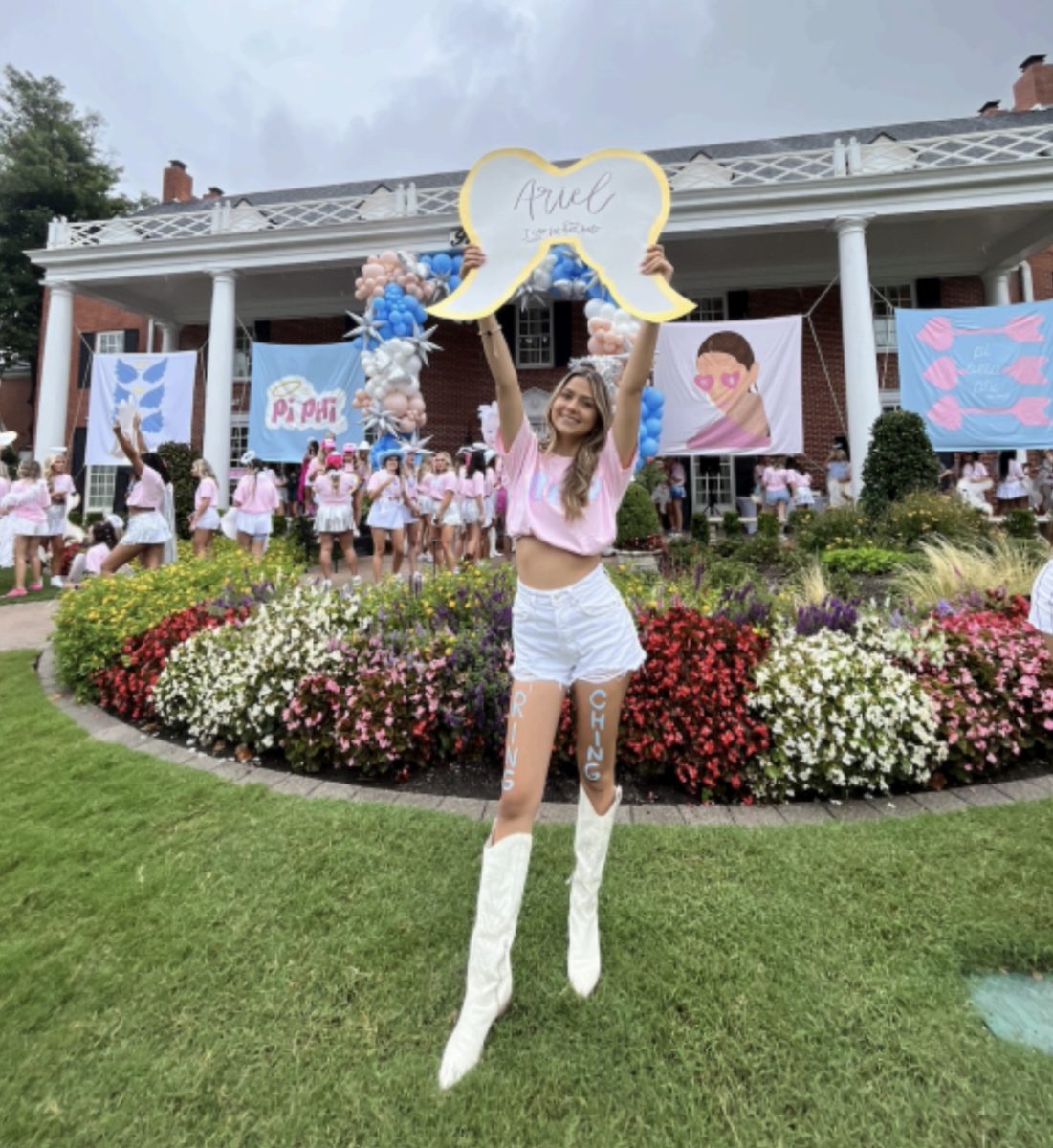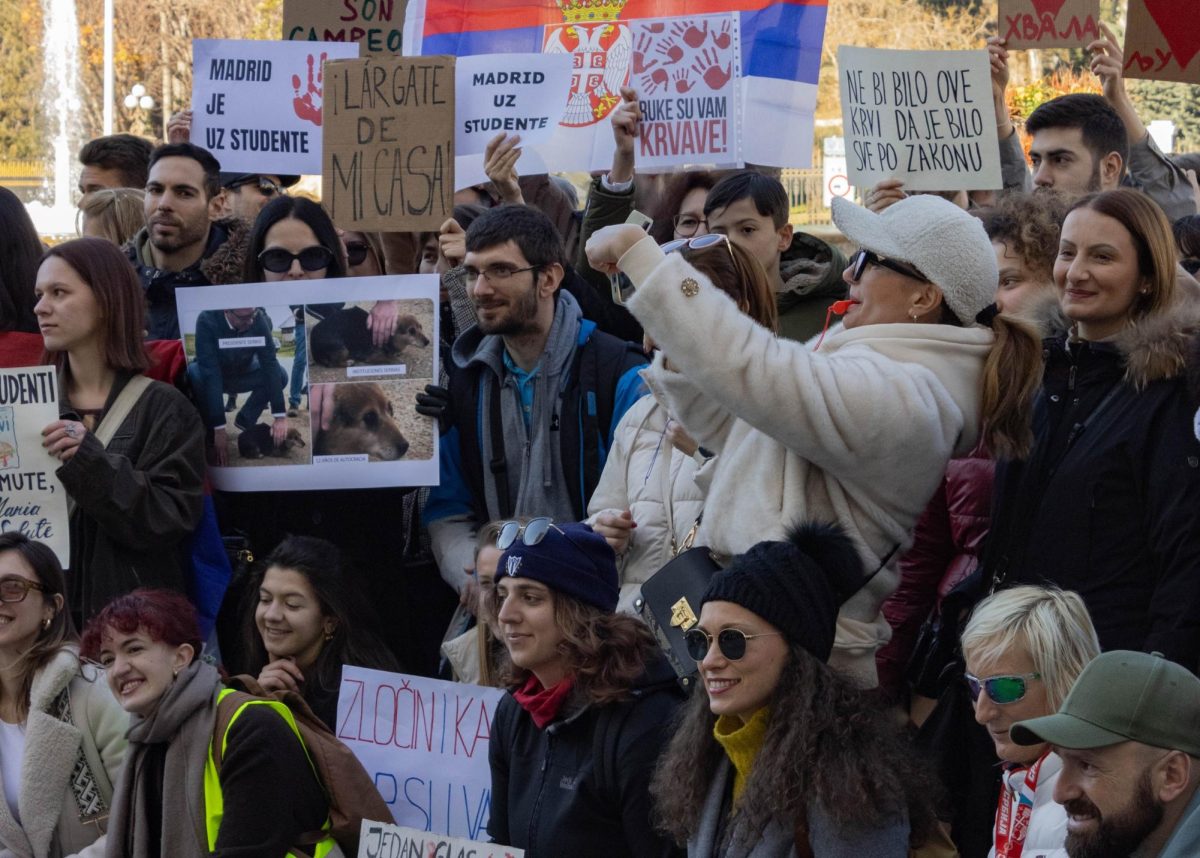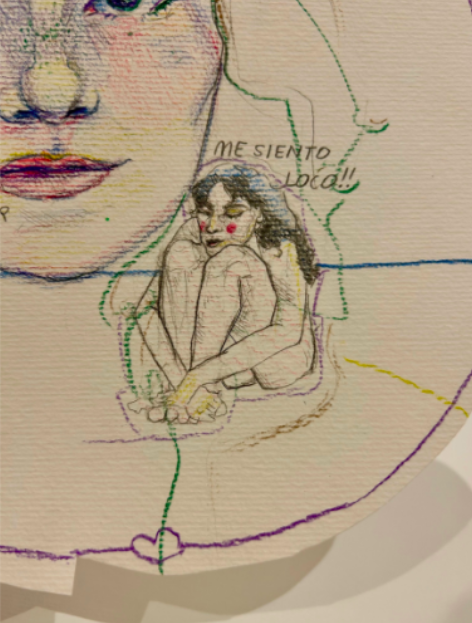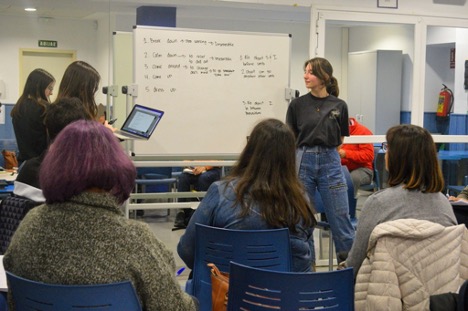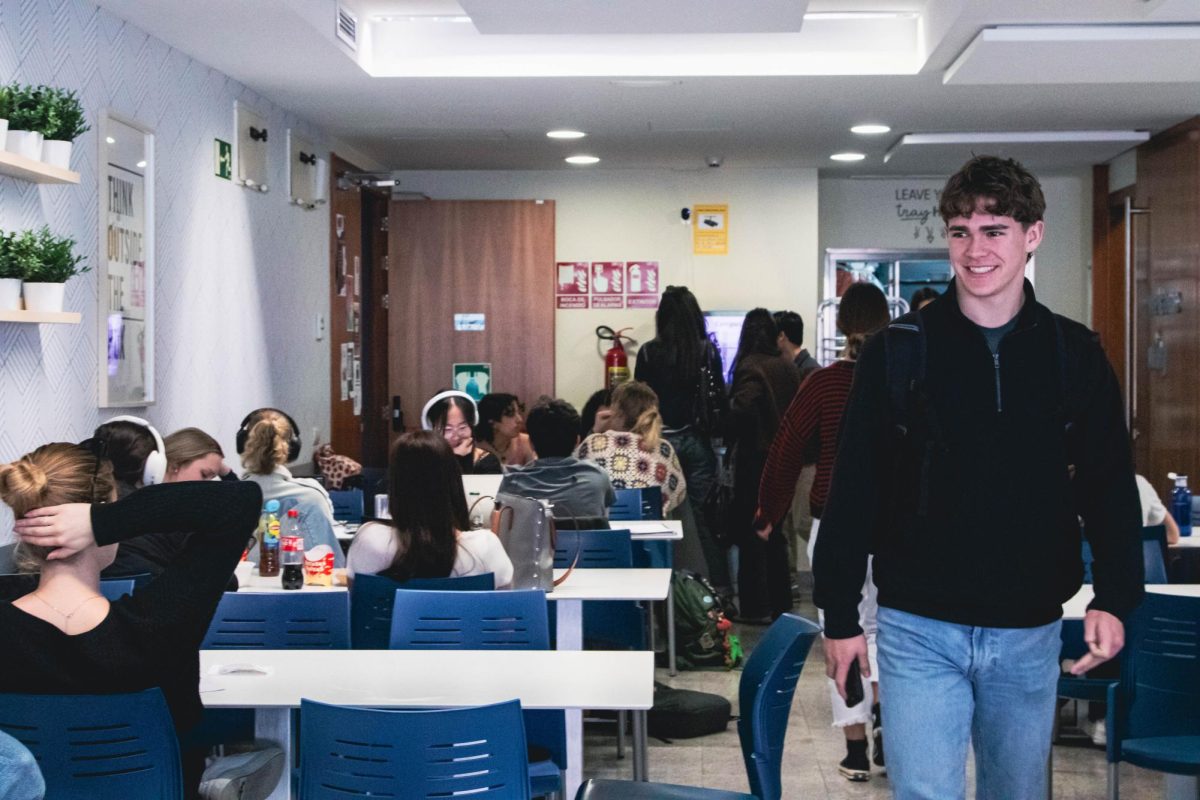After a long day of classes and part-time work, Amelie Van Hess and Liz Aykan don’t always sip a beer or watch Netflix. Instead, they talk about phrasal verbs – to get up, to calm down and other combos that drive non-native English speakers crazy — and try to make it fun.
Van Hess and Aykan are student volunteers for SLU-Madrid’s community English as a Second Language program, which teaches English to adult Spanish speakers in Madrid for free. Each Tuesday and Thursday, from 7 to 8 p.m., they instruct roughly 25 students in the Padre Rubio Hall basement. Another student, Elise Johnson, teaches ESL to adults via Zoom every Monday from 7 to 8:30 p.m.
The program, begun in 2002, was designed to strengthen the link between the campus and community.
Many adult pupils say they are interested in improving their English for job opportunities and applications, traveling, and communicating with foreign friends. Some advanced speakers want to “dust off” their skills.
Volunteers approach the class with “conversational, practical English, not textbook English,” as Van Hess says. They focus on practical forms such as writing emails and resumes, and situations such as travel. They even teach the necessary vocabulary for responding to airport security agents upon arrival in the United States. “English is a universal language,” Van Hess says.
Van Hess is from Colorado and, like many SLU-Madrid students who come to Spain from the U.S., she understands that the best way to learn a different language is through real-life conversations. For this reason, she and Aykan always speak in English to their beginner pupils – with clear pronunciation and tone. Their pupils manage to understand the lessons and even ask questions in English.
Van Hess and Aykan make the lessons engaging by playing icebreaker games, such as telephone and charades. They usually start the class with a song, such as “Paint it Black,” by the Rolling Stones, which kicked off a lesson on phrasal verbs. After playing the song, they handed out the lyrics and asked the students to underline all the phrasal verbs they could find.
In a recent game of charades, students had to describe a randomly selected phrasal verb without actually saying the words. Van Hess and Aykan wrote down several phrasal verbs on pieces of paper, such as “to get up” and “to calm down.” Then, students had to pair up and perform their assigned word with a dialogue and physical actions.
The game quickly boosted the mood: students were cheering when they rushed to guess correctly, which they did often. One pair of students went to the front of the circle and began their dialogue:
“I lost the keys to my home, I need to…”
“To look for!” the students yelled.
The next pair followed: “Oh, that’s a nice dress! I like your makeup!” said one student, while a female student touched up her hair.
“To dress up!” someone yelled.
The adult students laugh and exchange high fives.
Van Hess and Aykan said they feel rewarded when they see the improvement and increasing independence of the students in the English language. They also appreciate the teaching experience for their future careers. “The most impactful people in my life have been teachers,” Van Hess said.
To learn more about participating in the Community ESL program, contact Hamish Binns, ESL program director, at [email protected]. If you wish to learn English, contact: [email protected].
